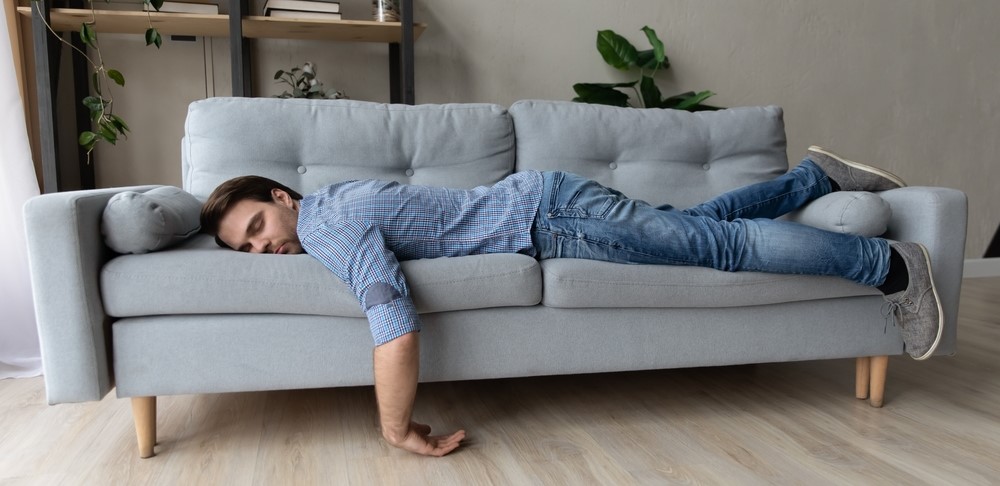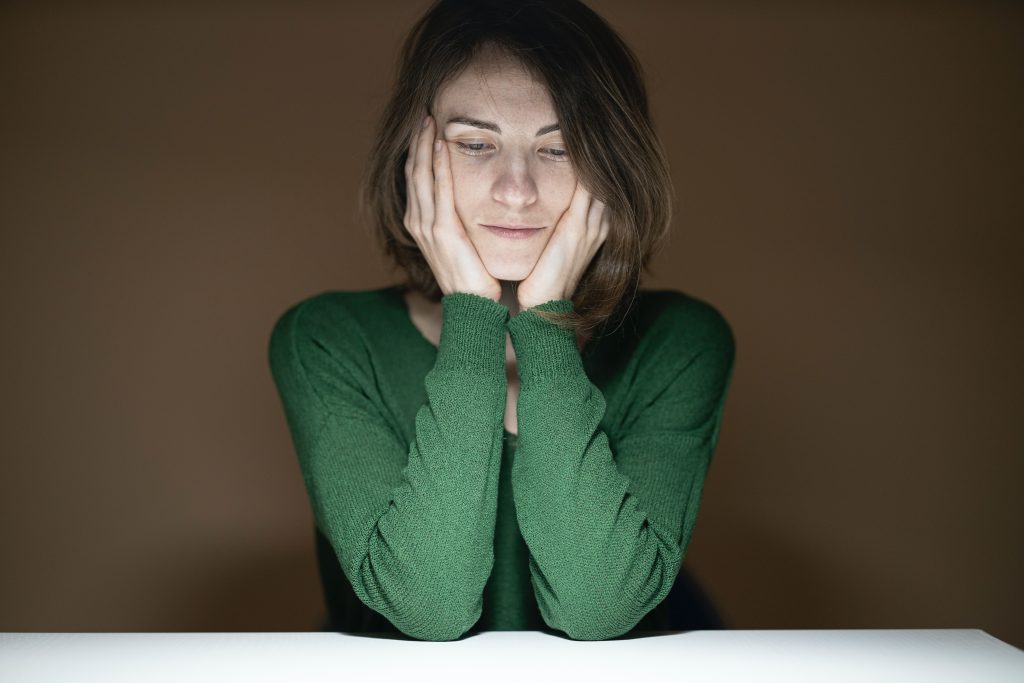It would be fair to say that at some point or another, most people have struggled with stress and anxiety and have found it difficult to sleep. But have you ever thought the two might be connected?
Since the COVID-19 pandemic began, many people have found it even more problematic to manage their stress, especially as people work from home and the lines between work and life are blurred like never before.
A recent study conducted in 2021 looked at over 22,000 people from 13 countries and found that 36% of participants suffered from insomnia, while a further 17% suffered from other sleep disorders. These numbers have doubled post-pandemic.
Elizabeth Blake Zakarin, a professor of psychology at Columbia University, summed it up best, saying, ‘Just like our electronics need to be charged, sleep may recharge or reset the brain to optimize functioning’.
The connection between sleep and mental health

It’s no secret that the quality of your sleep can positively or negatively impact your physical and mental health. Only get 3 or 4 hours, and you wake up feeling groggy and sluggish, but get a solid 8 hours, and you’re primed for peak performance.
Sleep deprivation can manifest instantly, such as in an accident, or it can happen over time in the form of depression and other chronic health issues. Lack of sleep negatively impacts your ability to make good decisions, which can have dangerous consequences, especially if you operate heavy machinery or drive a car.
Research also shows that lack of sleep alters activity in the brain, which helps you solve problems, control your emotions and make the right decisions. Furthermore, sleep deprivation has been linked to increased depression and suicide.
Children who suffer from sleep deprivation may display symptoms like mood changes, lack of motivation and trouble staying focused for long periods of time.
Five ways lack of sleep harms your mental health

There’s no denying that sleep can positively and negatively impact your physical and mental health. Researchers believe that lack of sleep, or ‘sleep deprivation’, can lead to serious mental health problems if not treated early.
Let’s look at five ways sleep deprivation affects your mental well-being.

1Morning brain fog
Who hasn’t woken up with brain fog? Poor sleep in terms of quality and duration can lead to cognitive problems such as memory recall, learning and decision-making. Other signs of brain fog are having trouble finding the right words and being unable to concentrate and focus for extended periods.
Your productivity also plummets and is often accompanied by a lack of motivation and regular bouts of daytime tiredness.
2Mood changes
Sleep deprivation has been linked to increases in mood changes or ‘mood swings’ and is also believed to heighten irritability. Research has also found that people who lack sleep are generally angrier and more aggressive than those who get their regular 8 hours.
3Stress and anxiety
Researchers have found that stress and sleep deprivation go hand-in-hand. People who suffer from depression struggle to get and stay asleep. Additionally, this vicious cycle continues because lack of sleep also results in increased stress and anxiety.
4Depression
According to a study published in JAMA, more than 300 million globally suffer from some form of depression. Additionally, a further 75% of those suffering from depression were shown to have a sleep disorder like insomnia or sleep apnea.
 Source: National Library of Medicine
Source: National Library of Medicine Past research pointed toward depression being the cause of sleeping problems, but recent studies show the opposite to be true. A lack of sleep may actually worsen or induce depression and other mental health conditions.
5Seasonal affective disorder
I can attest that ‘seasonal affective disorder’ is not only real but can significantly affect your mental health. Seasonal affective disorder impacts people who live who cooler climates, such as some regions of the Northern Hemisphere.
Classed as a subtype of depression, seasonal affective disorder disrupts the body’s circadian rhythm due to a reduction in the hours of sunlight exposure. The end result is people in those regions either find themselves sleeping too much or not enough.
Five ways to improve mental health and sleep

Lack of sleep can cause mental health problems which can be treated by a qualified sleep expert; however, there are steps that can be taken to not only boost your mental outlook but improve your sleep.

1Shorts naps
Taking short naps during the day is a great way to refresh and rejuvenate your body and mind. Naps no longer than 20 minutes are advised. Napping any longer than that can impact your ability to get to sleep.
2Get a bedtime routine
Routines are powerful and help athletes and business people achieve great heights, But did you know that routines can also help you get to sleep? For example, reading a book before bed, taking a warm bath and drinking herbal tea can help clear your mind and help you ‘hit the hay.‘
3Limit caffeine
Who doesn’t like a nice cafe latte or a little espresso? You’ll be glad to know you can still indulge in your morning coffee shot. Just be sure to limit your consumption of caffeine, sodas and other sugary drinks late in the afternoon, as they can negatively impact your ability to fall asleep.
4Limit alcohol
Yes, you will have to limit alcohol consumption if you want to improve both your mental health and your sleep. Studies have shown that alcohol causes sleep disturbances, resulting in you waking several times during sleep.
5Put your phone down
Blue light has been shown to negatively impact your ability to sleep, so turning off all your electronic devices at least an hour before bed is highly recommended. Your best bet is to leave your phone in another room while you sleep.
Sum it up

Unlike other health issues, research is abundant when it comes to the association between sleep and mental health. Sleep deprivation, in particular, can lead to more serious mental health problems such as depression and disorders like insomnia.
It’s important to seek advice as early as possible before things ‘spiral out of control’. Luckily, making minor lifestyle changes, such as eating better and getting regular exercise, can help develop a positive mindset.
As always, if you find these tips aren’t helping, please seek the advice of your local healthcare professional. These experts can provide professional support for your sleep and mental health.








